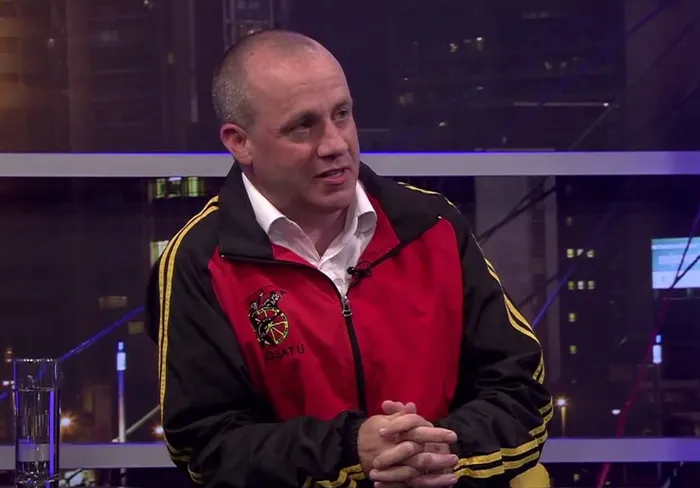
Cosatu parliamentary coordinator Matthew Parks says the labour federation supports the long overdue Insourcing Bill and undertook to mobilise its full support to ensure its expedited passage by Parliament and assenting into law by President Cyril Ramaphosa.
Image: FILE
Labour federation, the Congress of South African Trade Unions (Cosatu), has thrown its weight behind the private members’ bill aimed to end outsourcing of core government services.
The Insourcing Bill, introduced in the National Assembly last month by EFF’s Omphile Maotwe, will compel all organs of state to employ workers to provide the regularly required services, once passed.
Cosatu’s parliamentary coordinator Matthew Parks said the labour federation supported the long overdue bill and undertook to mobilise its full support to ensure its expedited passage by Parliament and assenting into law by President Cyril Ramaphosa.
“This progressive bill speaks to Cosatu’s demand to insource key functions performed by various state organs. It responds to long-standing resolutions of the ANC and the Tripartite Alliance,” Parks said.
He said the call to insource has been a cry from thousands of workers whose labour rights have been undermined and conditions of service deteriorate as they have been outsourced across the state over many years.
The preamble of the bill states that there is a need to provide a legislative framework to supplement the current system of wholesale outsourcing of services and functions required by organs of state.
This was to address administrative problems created by the outsourcing of services, corruption in the tender system, and enhancement of accountability in delivering services to the citizens.
The bill says it is a duty on the State to put an end to the exploitation of workers, whose services are currently procured by way of outsourcing to provide the services that the state regularly requires.
EFF spokesperson Sinawo Thambo said at core of collapsing the state was the wholesale outsourcing of public services to third party contractors.
“This trend has led to widespread corruption, manipulation of the tender system, inflated pricing, exploitation of workers and ultimately the non-delivery of services,” said Thambo.
He said outsourcing has replaced long-term skilled employment with insecure, short-term contracts that offer no benefits or prospects for training or career development.
The bill wants the state to insource everything from security, cleaning, gardening, maintenance, catering, auditing, ICT, transport, administration and health-related services.
The exemptions are only cases of circumstances of national security, services needed can only be obtained from an international supplier or it is in the public interest.
The bill provides for the Minister of Public Service and Administration to develop an insourcing policy and accounting officers of organs of state will be expected to implement the policy and ensure personnel are adequately deployed and resources are in place to insource services.
Parks said outsourcing has become a key ingredient of state capture and corruption across the state with incestuous collaboration by corrupt elements in both the public and private sectors.
“It has not only weakened state capacity to deliver the public and municipal services that working class communities and the economy depend upon, it has bled the state of scarce resources needed to fund hospitals, schools, policing amongst other frontline services. If we are to win the war against the cancer of corruption, then such functions must be insourced,” he said.
“We cannot continue to be shocked, condemn or hide from Sunday headlines of this or that politician or their family receiving a grotesquely inflated tender whilst failing to deliver the goods, and yet we fail to act on this hollowing out of the state.”
Thambo said when the bill is referred to the relevant portfolio committee, its processing should be inclusive and participatory.
“The legislative process must prioritise greater good of rebuilding South Africa’s state capacity and restoring skilled public services capable of addressing service delivery failures rather than narrow party-political positions.”
Related Topics: